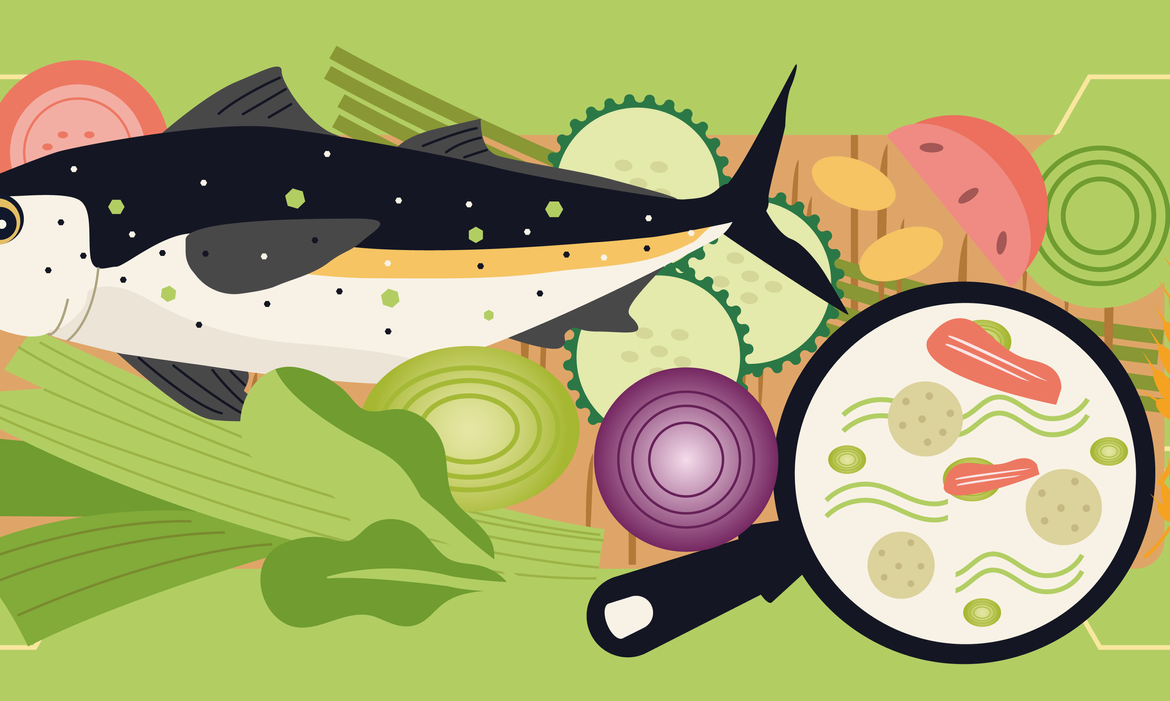Food has the ability to transform our wellbeing – so here’s how to use it
From meditation and mindfulness tools, including classes and apps, to a broader offering of therapies, and a wide variety of courses involving movement such as yoga – there’s a lot on offer when it comes to effectively soothing anxiety. However, one key topic has not had as much publicity, even though it plays a crucial role in our mental health and mood, as well as providing the foundation for our body to function and restore balance.
After creating and delivering numerous presentations on the link between nutrition and mental health, I really felt so passionate about this subject and it has now become a major part of my clinical practice. So, to give you an idea of how powerful food can be when it comes to mental health, I will share my top tips on what to eat to soothe anxiety.
1. Healthy fats
Healthy fats, such as omega 3, are crucial for brain function, and are strongly linked to our mental health. Research shows that an imbalance of omega 3 and omega 6 fats can increase our risk of developing mood disorders. To help restore balance, try to include three portions of oily fish in your diet per week – such as salmon, mackerel, anchovies, sardines, and herring.
While oily fish are the best food source of omega 3 fats available, you can also include shelled hemp seeds, ground or soaked flax/linseed, and soaked chia seeds on a daily basis. These are an excellent source of omega 3, as well as protein, fibre, and other beneficial nutrients. You can sprinkle these over salads, stir them into porridge or overnight oats.
Also, try to limit processed foods made with sunflower or corn oil (crisps, biscuits, chocolates, cakes, and many ready meals), as these are particularly high in omega 6 fats.
2. Tryptophan
The amino acid L-Tryptophan is a crucial precursor of serotonin, our happy hormone. While serotonin also has many other functions in the body, it is best known for its role in stabilising our mood. Without enough tryptophan, the body can’t make adequate amounts of this essential hormone.
To ensure you get plenty of tryptophan in your diet try to get at least 1g of protein per kilogram of body weight each day. Getting adequate protein is one of the best ways to cover your tryptophan needs, and remember to always eat protein with carbohydrates (from vegetables, fruit, or whole grains) as the body can only properly utilise tryptophan when consumed with carbs.This is because carbs are needed in order for tryptophan to cross the blood-brain barrier, and be converted to serotonin.
I often see clients who report chronic low moods and increased anxiety when trying to lose weight on a very low-carb diet. Some foods, which are particularly high in tryptophan, to add into your meal rotation are turkey, oats, nuts, seeds, bananas, and cherries.
3. Magnesium
Otherwise known as ‘nature’s chill pill’ (among nutritionists), magnesium aids relaxation and helps to regulate neurotransmitters. A 2017 review that looked at 18 different studies found that magnesium did reduce anxiety. The studies looked at mild anxiety, anxiety during premenstrual syndrome, postpartum anxiety, and generalised anxiety. Including plenty of magnesium-rich foods is important not just for anxiety, but also helps build stress resilience, and improves sleep quality. To meet your daily needs, I recommend the following: include at least one portion of leafy greens each day. Spinach, kale, chard, and dark leafy salad leaves are all good sources. Add these into soups and stews, make a side salad or put them in your smoothie. Other good sources of magnesium to include regularly are nuts (especially almonds), avocado, dark chocolate, and bananas.
4. Blood sugar balance
A growing body of evidence suggests a relationship between mood and blood-sugar. Symptoms of low blood sugar can mirror anxiety’s symptoms or worsen existing anxiety. Shakiness, fast heart rate, irritability, nausea, difficulty concentrating, and panic are all shared symptoms. To keep blood sugar levels stable and avoid exacerbating anxiety, follow these tips: include plenty of fibre with all your meals (from veggies and wholegrains); always include a source of protein with every meal and snack, and limit processed sugar and carbs; and try to eat roughly around the same time each day, plus stick to main meals and one snack.
5. Feed your microbiome
Your gut microbiome is a collection of trillions of bacterial cells located largely in the colon. It is directly connected to the brain. Your gut bacteria produce many neurotransmitters such as dopamine and gaba, which are critical for mood, anxiety, concentration, reward, and motivation. Research shows that if your microbiome is not balanced (something scientists call dysbiosis), the bacterial activities can have a negative impact on our mental health. To look after your gut, be sure to eat plenty of fibre, moderate sugar, avoid artificial sweeteners, and include probiotic food such as live yoghurt, kefir, kombucha, sauerkraut, and kimchi on a regular basis.
To discover more about food and nutrition, visit the Nutritionist Resource or speak to a qualified nutritionist like Uta Boellinger.

